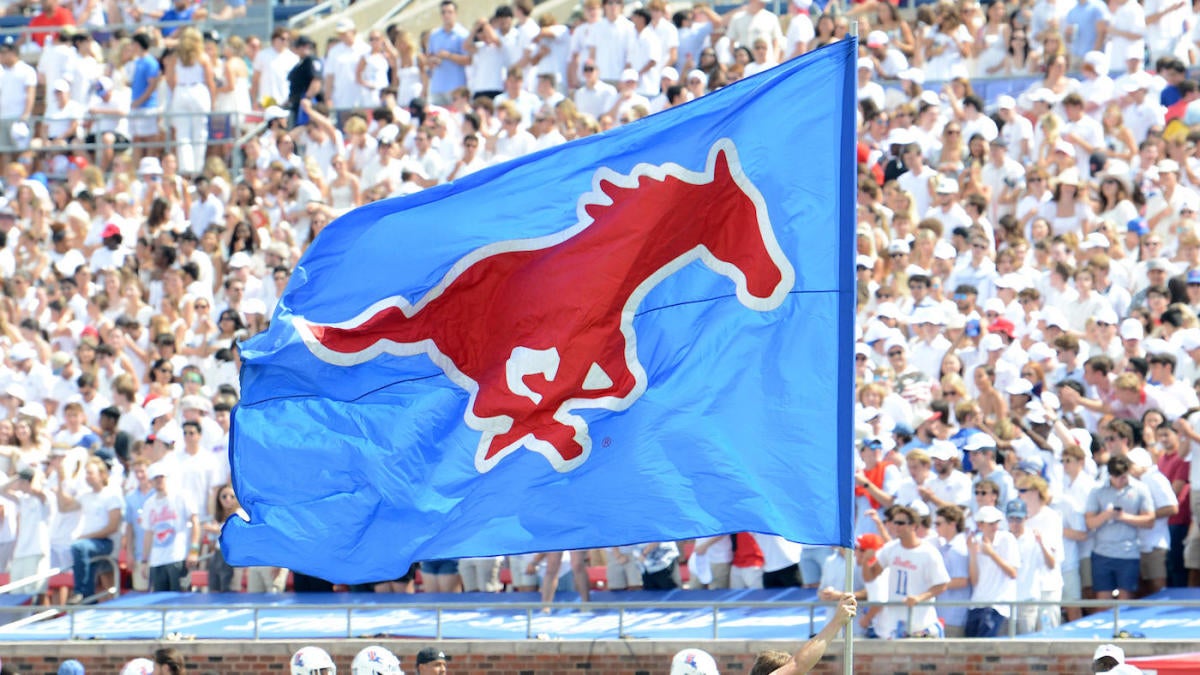Gopher_In_NYC
Well-known member
- Joined
- Apr 19, 2010
- Messages
- 24,627
- Reaction score
- 17,107
- Points
- 113
This is the difference -$100M in 7 days and this is only from 30 donors- they wanted to move to the ACc as they now have the platform to compete for national tiles -

 www.cbssports.com
www.cbssports.com
SMU will forgo television revenue for up to nine years upon joining the ACC in 2024, but the Mustangs' donor base is stepping up to curb any financial disadvantage. The university raised $100 million within a seven-day stretch to support the school's upcoming transition to its new conference, it announced Monday, centering on financial commitments from thirty individuals that include "trustees and key donors."
"This is an unprecedented financial commitment from a core group of donors who have understood from the beginning that moving to the ACC will be transformational for our University on both athletic and academic levels," SMU President R. Gerald Turner said in a statement. "While there is still much work to be done, the ability to rally this kind of support in just one short week demonstrates that SMU and Dallas recognize the excellence of this opportunity and are stepping up to support it."
SMU, along with Cal and Stanford, accepted an invitation in early September to join the ACC, though under the condition that none of the three schools will receive full television revenue shares out of the gate. While the Mustangs will be without TV revenue for the first nine years, the Golden Bears and Cardinal will receive 30% television revenue shares for the first seven years; that number increases to 70% in Year 8 and 75% in Year 9. The additions will bring an estimated $72 million in additional media rights revenue to the ACC, per multiple reports, with up to $60 million of that revenue distributed to existing members in a revised model.
This is not the first time that SMU's robust donor base has delivered. In the past year, SMU secured a $50 million commitment from the Garry Weber Foundation -- the largest gift in SMU athletics history -- to help fund a new $100 million end zone complex at Gerald J. Ford Stadium, set to open in time for the Mustangs' first season in the ACC next year. The school isn't expecting fundraising efforts to slow down anytime soon, either.
"When we announced on September 1 that SMU would be joining the ACC, I was highly confident that we would be able to cover the cost of the transition into what is one of the top three collegiate athletic conferences in the country," David B. Miller, chair of the SMU Board of Trustees, said in a statement. "To be able to raise this level of support in such a short period of time is astounding. It is an incredible start in our campaign to position SMU to compete for championships. I cannot express how grateful I am for the visionary leadership it demonstrates."
SMU's entrance into the ACC will put the Mustangs back in a major NCAA athletic conference for the first time since 1995-96, the final year of the Southwest Conference before it dissolved. Since 2013, the Mustangs have been members of the American, which already lost Houston, Cincinnati and UCF to the Big 12 before adding six new members earlier in 2023.

SMU raises $100 million in seven-day stretch from key donors to support upcoming ACC move
The Mustangs won't receive TV revenue from the ACC for up to nine years upon joining in 2024
SMU will forgo television revenue for up to nine years upon joining the ACC in 2024, but the Mustangs' donor base is stepping up to curb any financial disadvantage. The university raised $100 million within a seven-day stretch to support the school's upcoming transition to its new conference, it announced Monday, centering on financial commitments from thirty individuals that include "trustees and key donors."
"This is an unprecedented financial commitment from a core group of donors who have understood from the beginning that moving to the ACC will be transformational for our University on both athletic and academic levels," SMU President R. Gerald Turner said in a statement. "While there is still much work to be done, the ability to rally this kind of support in just one short week demonstrates that SMU and Dallas recognize the excellence of this opportunity and are stepping up to support it."
SMU, along with Cal and Stanford, accepted an invitation in early September to join the ACC, though under the condition that none of the three schools will receive full television revenue shares out of the gate. While the Mustangs will be without TV revenue for the first nine years, the Golden Bears and Cardinal will receive 30% television revenue shares for the first seven years; that number increases to 70% in Year 8 and 75% in Year 9. The additions will bring an estimated $72 million in additional media rights revenue to the ACC, per multiple reports, with up to $60 million of that revenue distributed to existing members in a revised model.
This is not the first time that SMU's robust donor base has delivered. In the past year, SMU secured a $50 million commitment from the Garry Weber Foundation -- the largest gift in SMU athletics history -- to help fund a new $100 million end zone complex at Gerald J. Ford Stadium, set to open in time for the Mustangs' first season in the ACC next year. The school isn't expecting fundraising efforts to slow down anytime soon, either.
"When we announced on September 1 that SMU would be joining the ACC, I was highly confident that we would be able to cover the cost of the transition into what is one of the top three collegiate athletic conferences in the country," David B. Miller, chair of the SMU Board of Trustees, said in a statement. "To be able to raise this level of support in such a short period of time is astounding. It is an incredible start in our campaign to position SMU to compete for championships. I cannot express how grateful I am for the visionary leadership it demonstrates."
SMU's entrance into the ACC will put the Mustangs back in a major NCAA athletic conference for the first time since 1995-96, the final year of the Southwest Conference before it dissolved. Since 2013, the Mustangs have been members of the American, which already lost Houston, Cincinnati and UCF to the Big 12 before adding six new members earlier in 2023.

